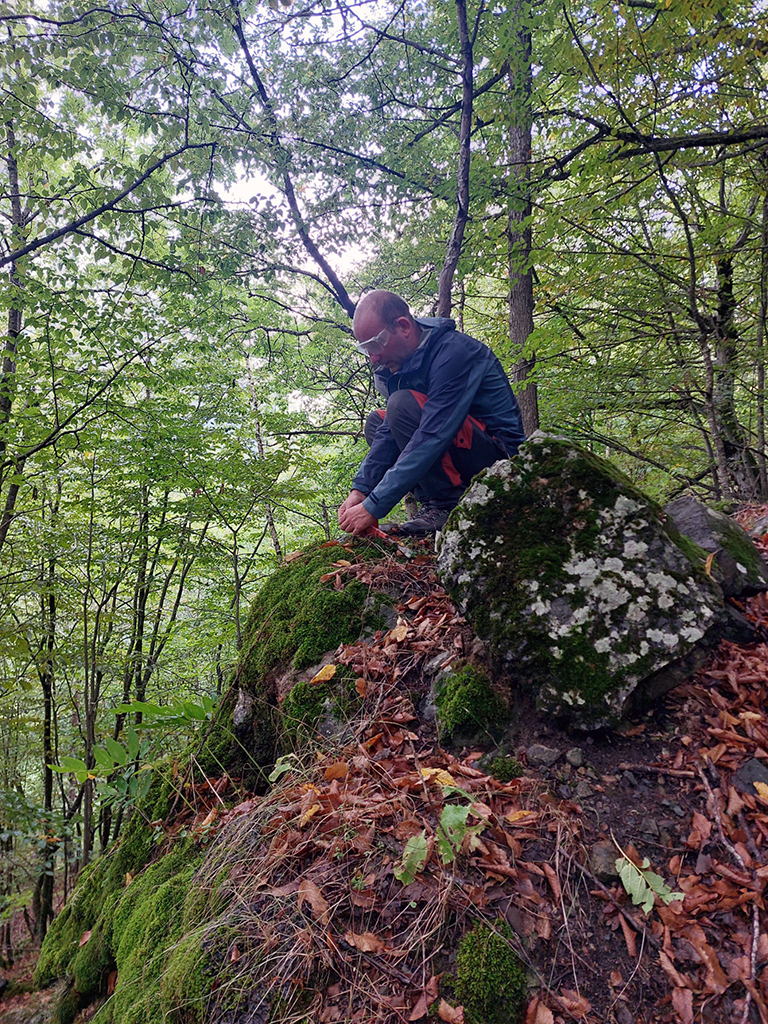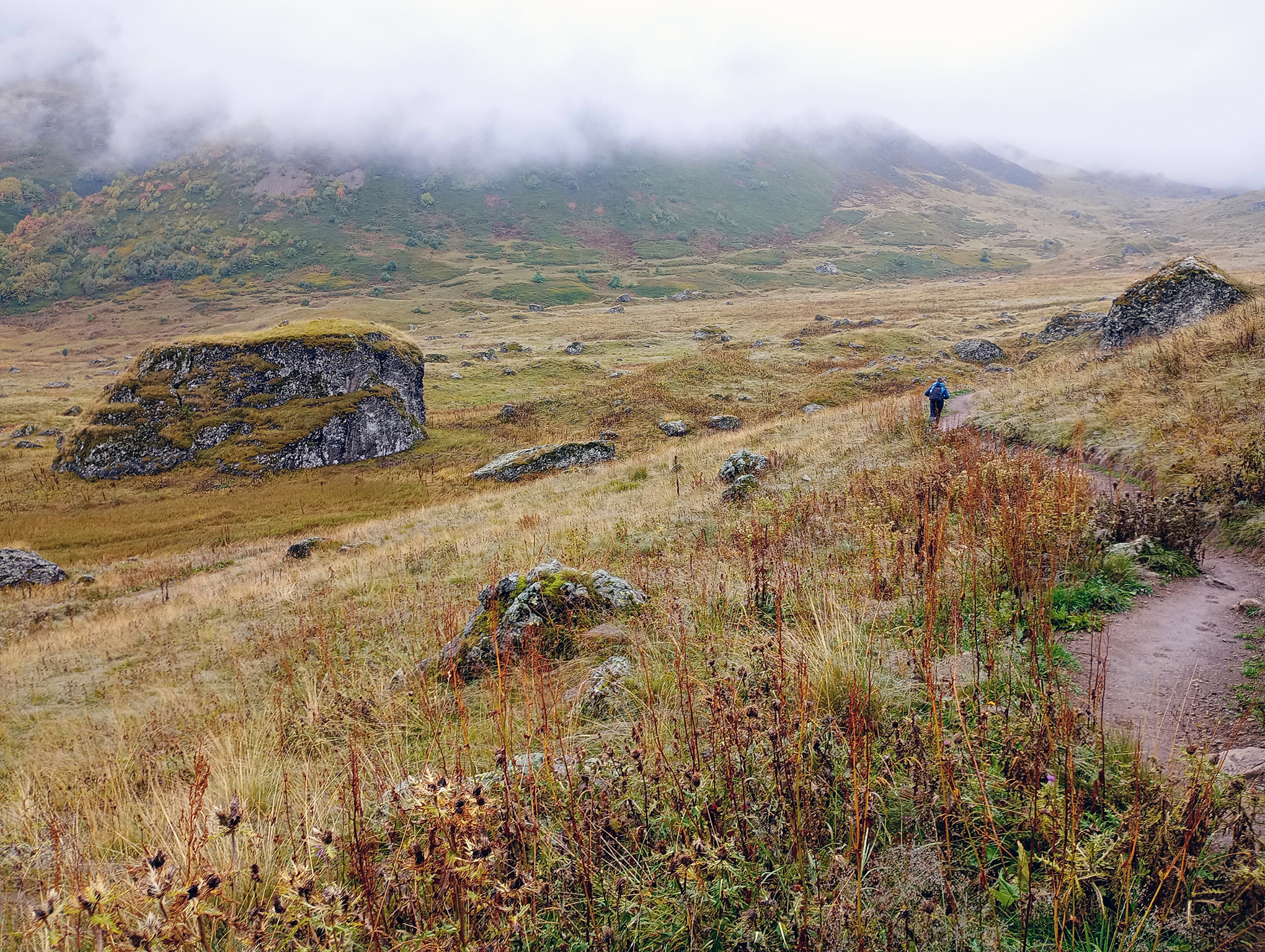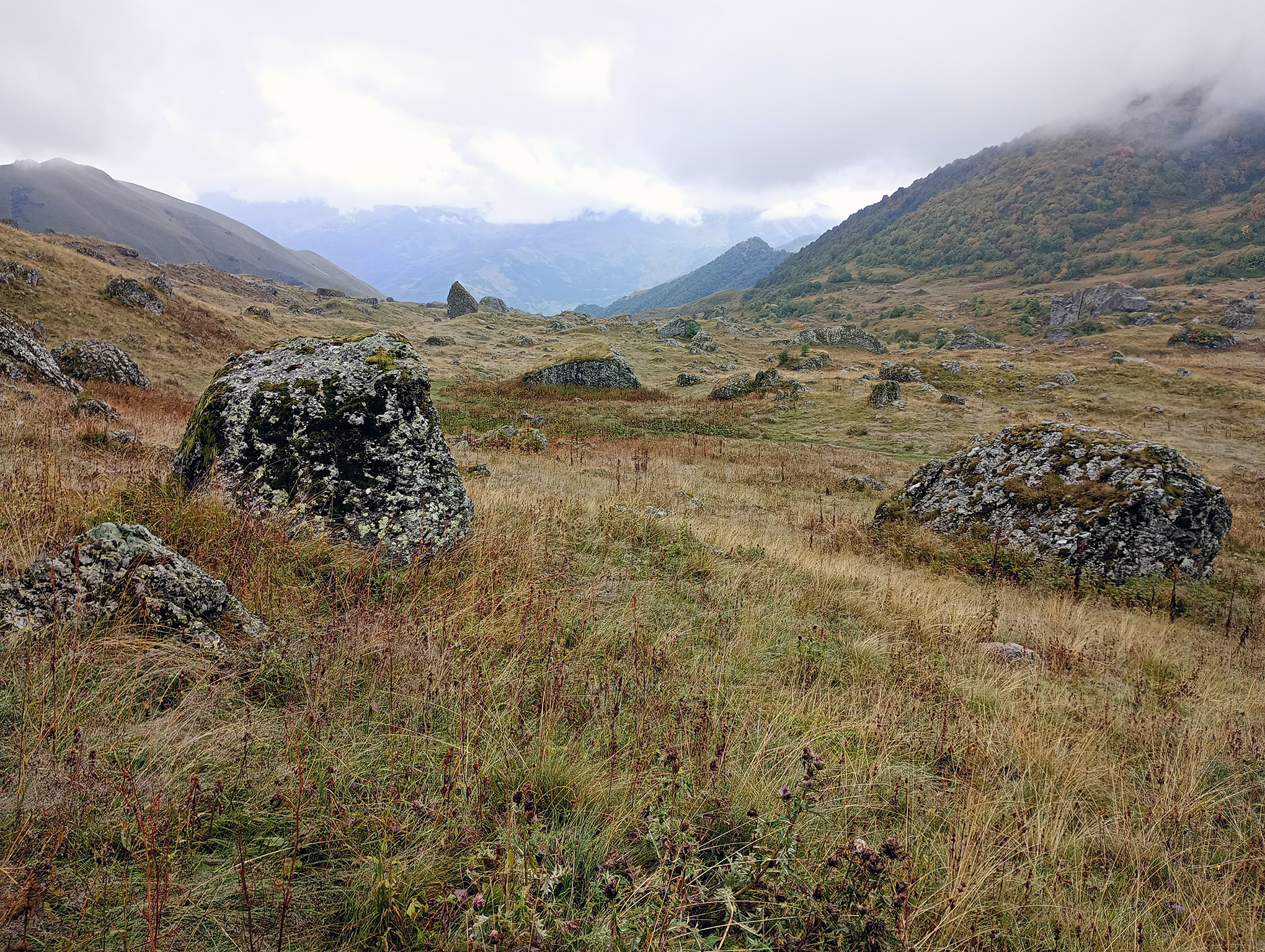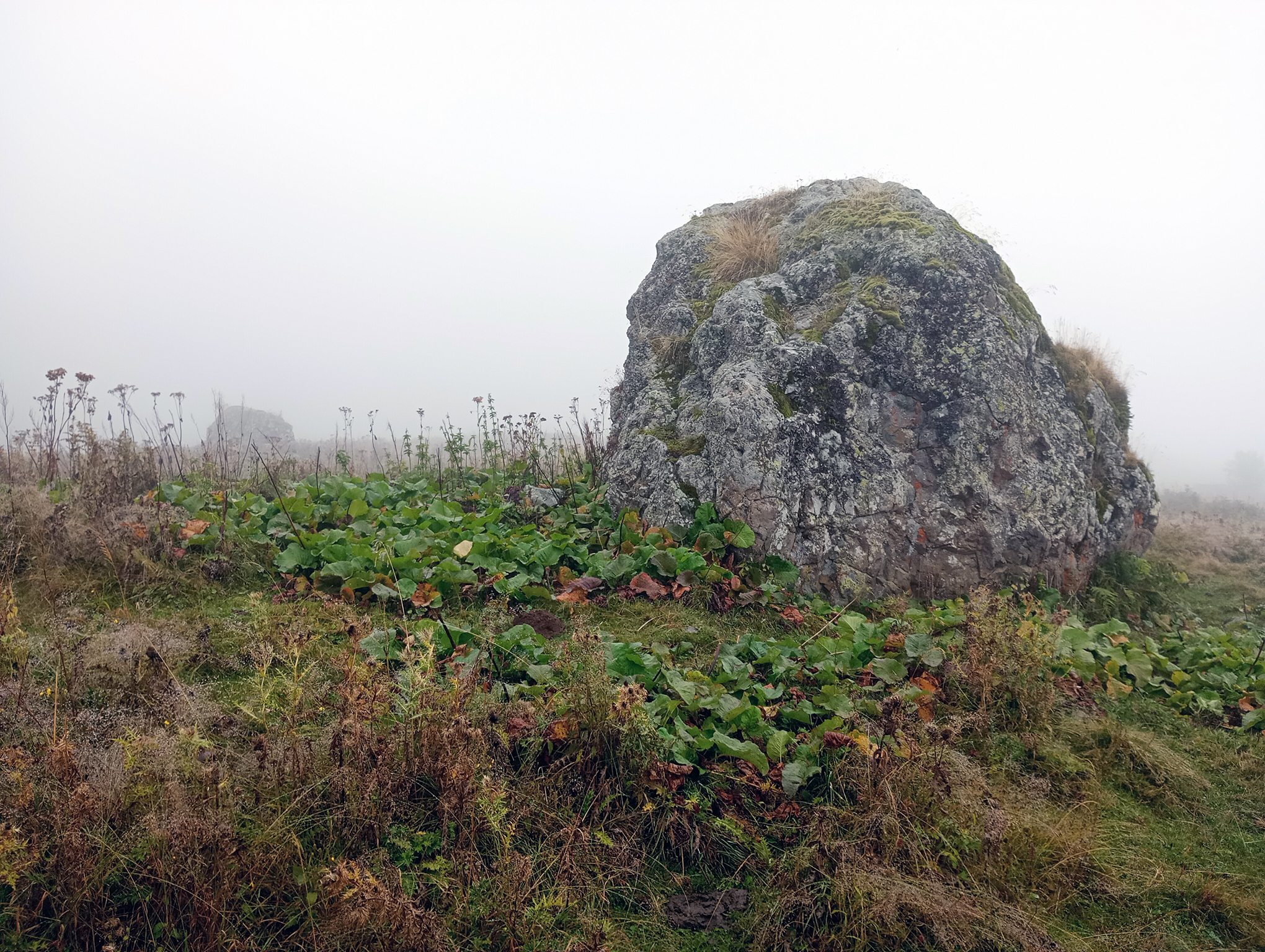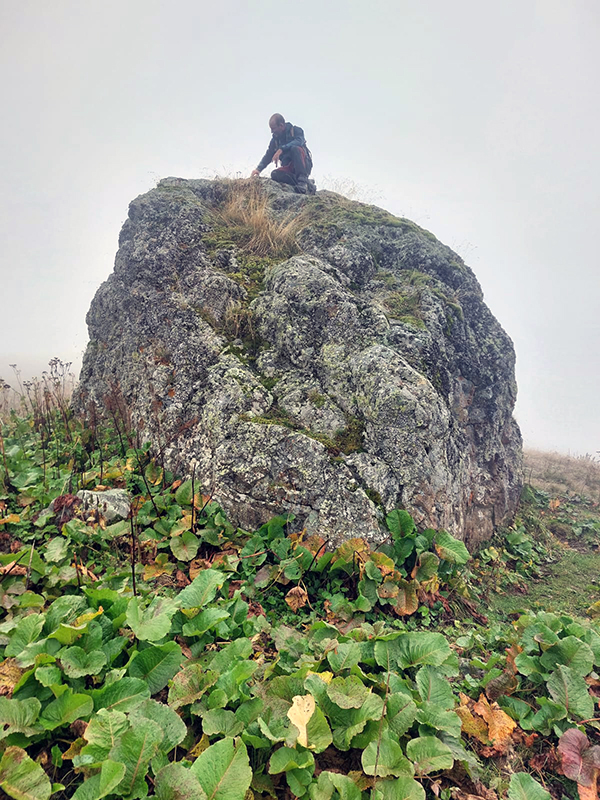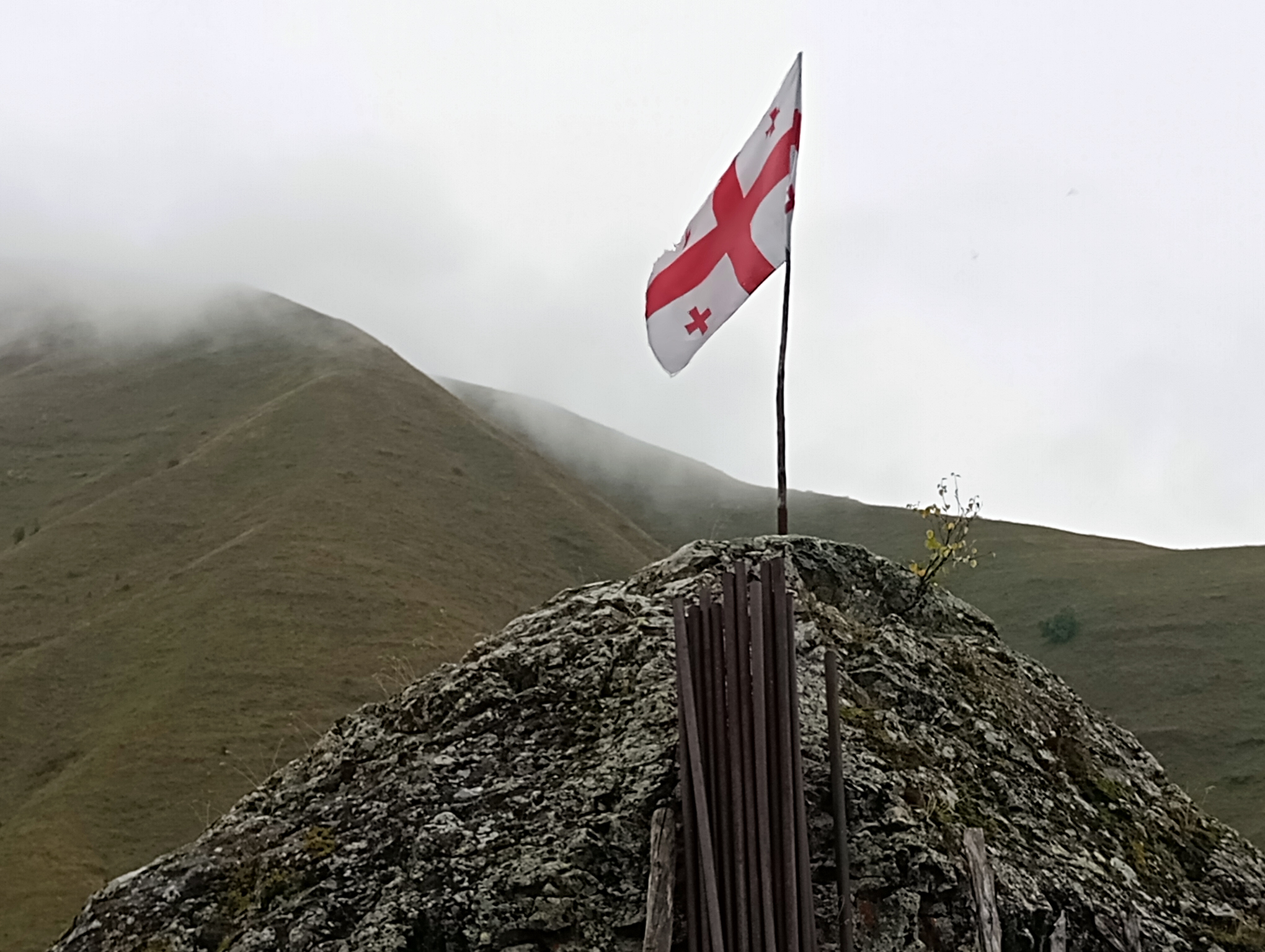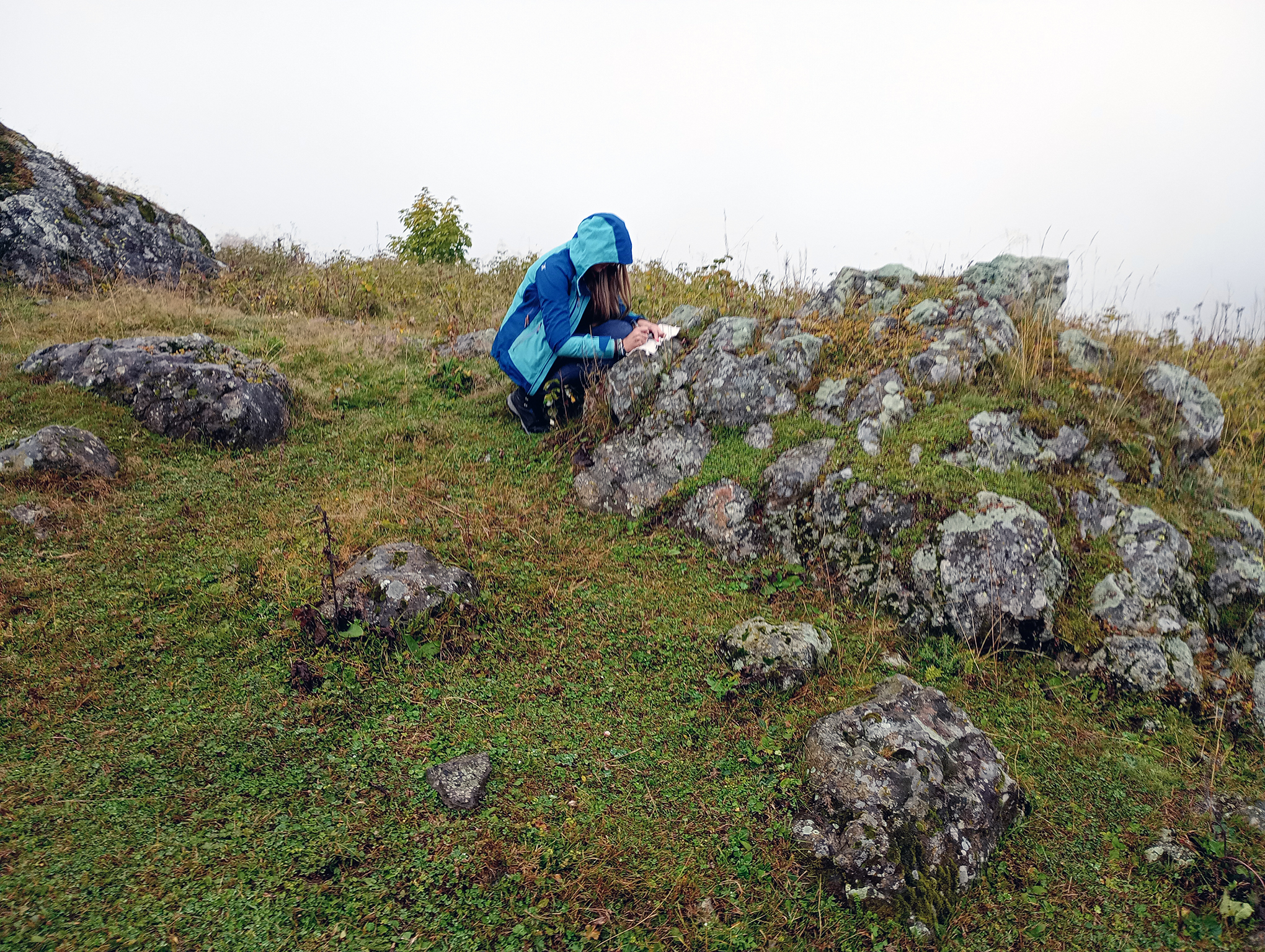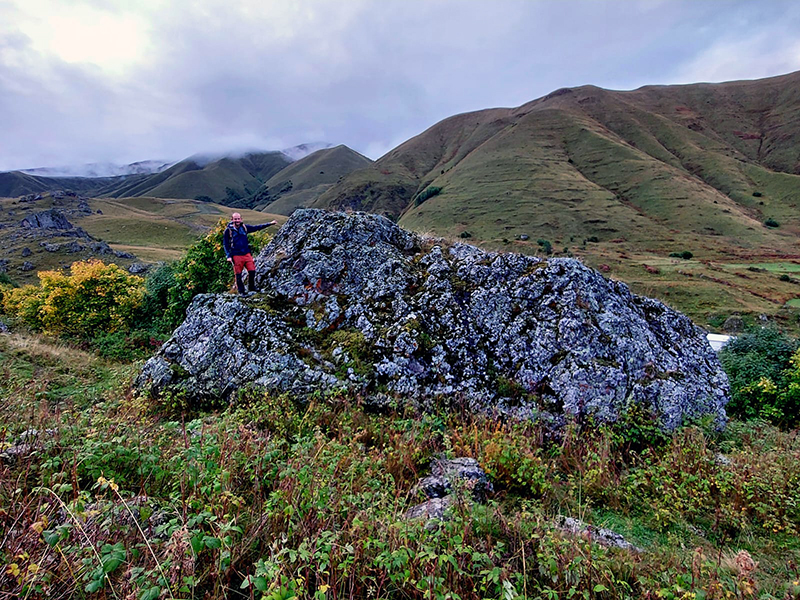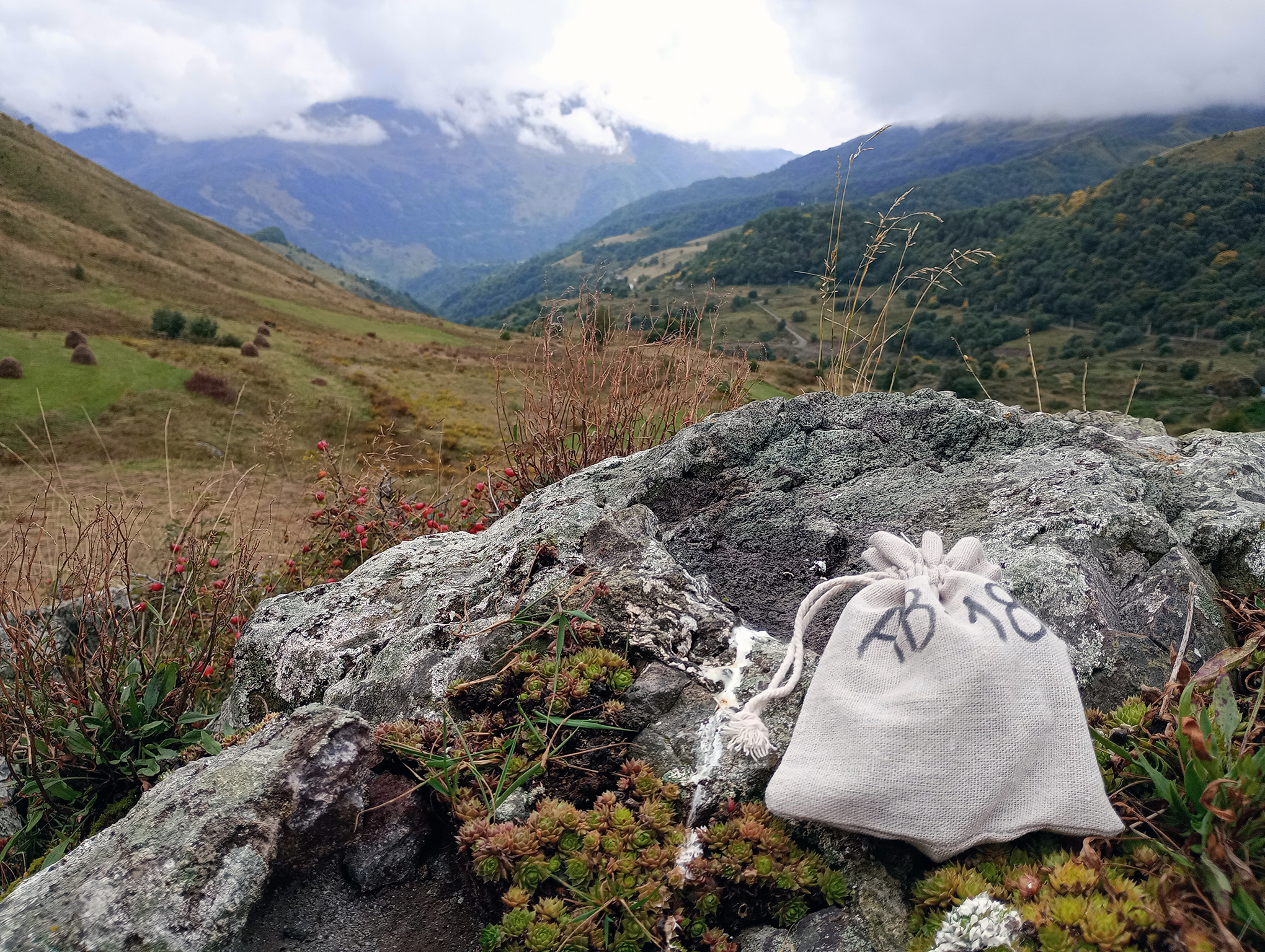The academic year has begun, so all the staff of our Department are on the spot within the walls of the university and devote themselves with great satisfaction to the teaching process. However, we still have a report on the end of the summer vacation and another of our many trips. Within the framework of the ERASMUS Plus KA107 program (cooperation with non-EU partner countries), from September 16-21 Karol Tylmann again conducted research in Georgia. More precisely, in one of the Caucasus valleys.
It probably won’t come as a surprise that our colleague was taking rock samples from large erratic boulders – much like lake research, it’s becoming a bit boring for us by now, but Karol insists that it’s an extremely important and interesting activity. Namely, he claims that:
- During the trip, a reconnaissance of moraine formations in the Roshka Valley was carried out.
- Moraines potentially dating from the period of the maximum extent of the Abudelauri glacier in the late Pleistocene were identified.
- 20 rock samples were taken from large erratic boulders located on these moraines for exposure dating using the cosmogenic isotope Cl-36 (chlorine) method.
All this in the framework of preliminary research to prepare a research project on reconstructing the extent of glaciers in the Georgian part of the Caucasus during the maximum of the last glaciation (LGM).
In addition to the rock samples, he also brought a ton of photos, so feel free to check out the short photo report. Dr inż. Joanna Potapowicz of our department’s Hydrology Department assisted in the research, who also took water samples from the Roshka Valley river system.
